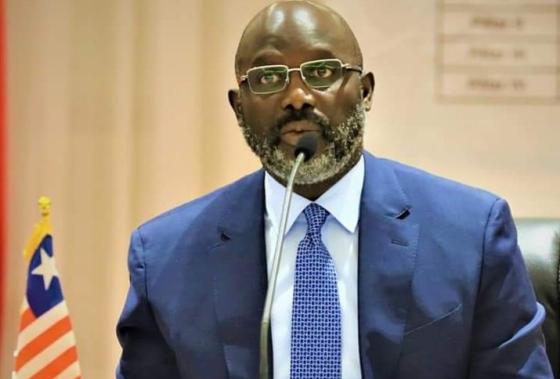Liberia: Pres. Weah Calls for Support to Liberian Businesses

President Weah George Weah has complained that the lack of support for Liberian-owned businesses among the population is hurting the country — forcing more local businesses to default on the payments of loans.
The Liberia leader argued that due to the failure of Liberians to buy from their fellow Liberian business people — the struggle to pay loans has become a living reality.
While it is not clear about how much time the President spends in promoting or patronizing Liberian-owned businesses, his complaint seems genuine as many local business owners have for years’ expressed dissatisfaction about the kind of support they get from their compatriots who, in numbers, patronize foreign business.
“How do they get money to pay the loans? We go to foreign businesses to buy instead of promoting our own businesses but when they fail to pay their loans owed the banks and we complain,” Pres. Weah sad. “Our people have their goods but no customers. I think we should start to promote our own businesses.”
The revelation by President Weah was made during a high-level cabinet meeting of the National Steering Committee of Pro-Poor Agenda for Prosperity and Development (PAPD) — intended to provide updates on the progress, challenges and prospects of the PAPD under the theme: “Building Forward Better.” The meeting was held at the Ellen Johnson-Sirleaf Ministerial Complex in Congo Town.
President Weah said Liberian-owned businesses are defaulting on the payments of loans due to failure of Liberians to promote their fellow Liberian business people. “How do they get money to pay the loans?” he wondered.
“We go to foreign businesses to buy instead of promoting our own businesses but, when they fail to pay their loans owed the banks, then we complain. Our people have their goods but no customers. I think we should start to promote our own businesses,” President Weah said.
The aim of the PAPD is to place Liberia on a higher trajectory of inclusive economic growth, secure peace and democracy, reduce poverty, solve infrastructure constraints in roads, electricity, port and telecommunications; improve agriculture, transform governance, improve the business climate and provide the means for private sector led growth.
President Weah said the PAPD remains the best expression of the government's collective ambition to achieve peace, prosperity, and national development and address the critical constraints to growth, such as regional disparity, low human capacity, and the poor distribution of our national wealth.
The Liberian leader said over the last three years, tremendous efforts have been made to meet the expectations of the Liberian people through massive investment in road infrastructure, the expansion of the electricity network in both rural and urban areas, investment in health and education.
“In health we have moved to provide new health facilities and to address challenges to the quality of care. In education, we are building nearly 100 new schools and have taken steps to bring more Liberians into higher education by abolishing payment of tuition fees at public colleges and universities and have reduced the burden on parents by having the Government pay the West African examination fees for 12th graders,” President Weah said.
Accordingly, President Weah said despite these revisions, the PAPD remains on course and has been able to achieve a lot, while still dealing with numerous challenges.
“In the course of these recent difficulties, we moved swiftly as a Government to prioritize public expenditure and aggressively grow domestic revenue,” he said.
Monday’s meeting, chaired by President Weah, was a colorful event graced by cabinet Ministers, Heads of Commissions and Agencies and Liberia’s development partners, including African Development Bank, Ambassadors of embassies and others.
On October 27, 2018 the PAPD was launched as a national development plan for the years 2018 to 2023 in Ganta, Nimba County by President Weah.
The PAPD is a framework for inclusion, more equitable distribution of our national wealth, and a rights-based approach to national development, according to the Liberian leader.
“It aligns our national plans with the African Union Agenda 2063 and the global Sustainable Development Goals (SDGs) as well as the vision of ECOWAS,” he said. “The development of the PAPD was a broad based consultative process that included all stakeholders including agencies of the government, our development partners, the UN systems, Civil Society organizations and the private sector.
“In 2019, while on the path of our development, macroeconomic shocks that began in 2018 gravely affected the PAPD. This shock was followed by the COVID pandemic, which the world is now living with. Considering these challenges, the Government had to revise and recalibrate the ambitions of the PAPD.
“As you may be aware, the implementation framework of the PAPD requires a National Steering Committee, which is the highest level of the PAPD governance and coordination structure, chaired by the President.”
President Weah said it is important to come together to take stock of what the government has achieved collectively over the last three to four years of the PAPD and face the challenges of the future together.
The Ambassador of Sweden to Liberia, Urban Sjöström, called on the government and partners to be more transparent and accountable for monies given for Liberia’s development.
Mr. Sjöström, who spoke on behalf of donor partners, said there’s a need for the government to implement a zero tolerance on mismanagement of donors’ funds.
